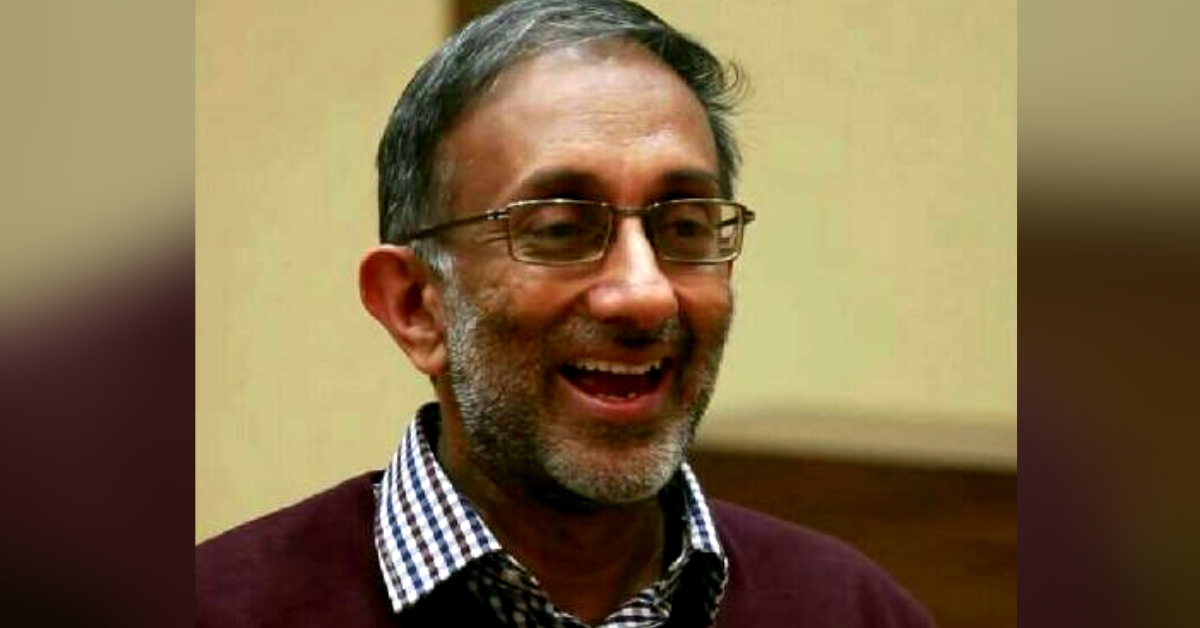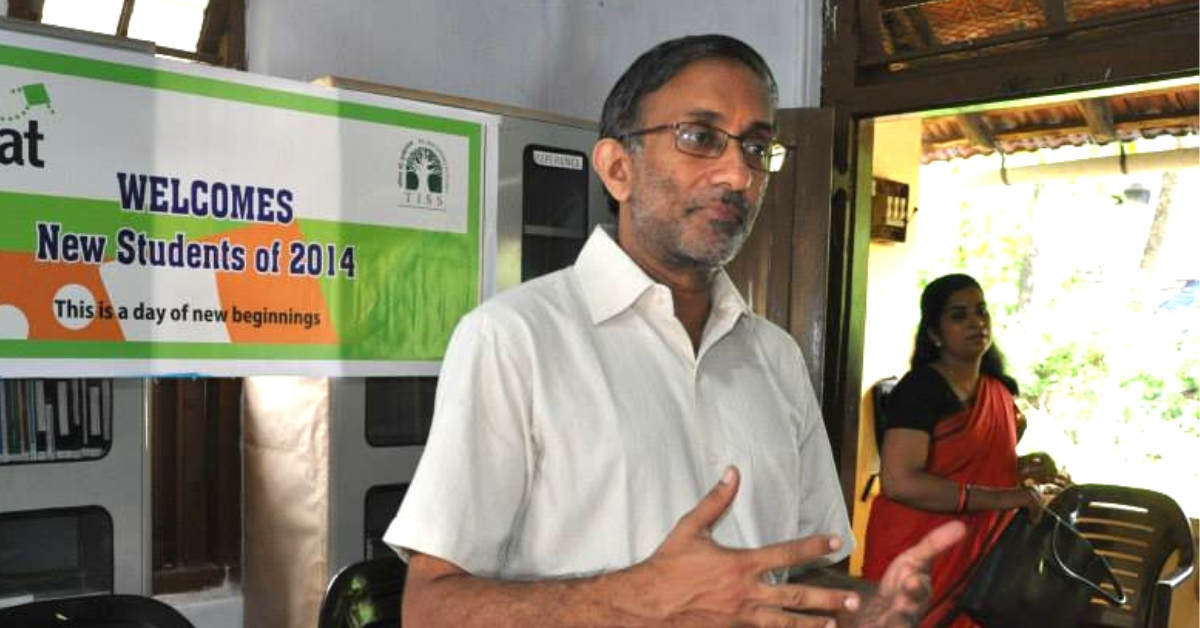“We see them all the time, like faded portraits. But often we take note only when they intrude into our neat world. We hurry up, trying not to steal a backward glance, while they continue their journeys, timeless and ubiquitous…”
In a country where mental health conditions cost over $1 trillion to the Indian economy (second only to cardiovascular diseases at $2.17 trillion), how unfortunate it is that they are largely ignored or hushed up. Mental healthcare centres may be spreading in the country, but the majority is saturated in urban areas.
66 per cent of the Indian population lives in the villages, and with over 13 per cent of all the people in India battling some form of mental illness, the country is doing a disservice to its citizens by letting a large portion of them suffer in silence.
Dr Manoj Kumar, a psychiatrist based in Kerala is on a mission to change this across the State.

About ten years ago, he left his psychiatric practice in the UK and flew back to India to take care of the mental health of the rural population here.
Speaking to The Better India about his years in India, Kumar says, “Kerala has a history of getting involved in social issues. I was a psychiatrist in the UK for about 15 years when I decided to come back to my roots and get involved with the community here. I could see that the governments are not doing enough to take care of mental illnesses and realised that a family-like model needs to be adopted to bring about a change.”
How the model operates
To aid his vision, Kumar founded the Mental Health Action Trust (MHAT) in 2008 in Kozhikode—an organisation that works on a decentralised model to provide mental health care to the rural populace. The first step, he believes, is to take the awareness about mental health beyond medical professionals and expand it into the communities. And so, the more than 1000 volunteers at MHAT become the first point of contact between the people and the organisation.
“These volunteers are homemakers, retired professionals and others who can spare time for the patients. Whether it’s a family member who has a high fever or some other minor issue, people contact these volunteers first. For the patients, it is a support system that is available at any time of the day, for any issue they face. For the volunteers, it is the first step of training,” Kumar explains.
The volunteers analyse the problem, and depending upon how serious it is, the problem is either solved at the volunteer stage or passed over to the trained professionals. The 1000 volunteers are spread across 55 centres in the districts of Malappuram, Wayanad, Kozhikode, Palakkad, Thrissur, Alleppey, Kasarkode and Kottayam in Kerala.
As each centre is located in a village, those among the volunteers who wish to become Community Mental Health Workers (CMHW) are trained more intensely by professionals. Dr Kumar told us that about 100 people work as CMHW which is less than the number of volunteers. A level above them are psychologists and Psychiatric Social Workers who have educational qualifications to take up therapy and counselling sessions but can’t prescribe medicines.
On the very top of the pyramid are medical professionals like Dr Kumar.
How technology is bringing people together
With a decentralised model like this, it is essential to deal with the mental health issues at different levels. But at the same time, medically trained psychiatrists like Kumar need to scrutinise the patients and their disorders before directing them to the volunteers or psychologists. And so, technology plays a crucial part in the functioning of MHAT.
With Apps like WhatsApp, Skype, Google Hangouts and other video-callings sources at their service, Dr Kumar can interview his patients online and then decides whether she or he needs medical treatment or therapy or both.
You may also like: Jack Preger: The British Pavement Doctor Who Spent 40 Years Treating Kolkata’s Poor
“We save all the details of the patients in an electronic database,” Kumar tells us adding, “Mental healthcare resources need to be free. Here’s where technology helps us a lot. I can attend to over 50 patients every day with the help of this model and can analyse which of them need my expertise urgently and who counselling can help.”
While Kumar does not cash in a salary in MHAT, the community health workers and psychologists do. The organisation depends on individual contributions to fund the salaries and other finances required for the treatment. For the patients, the treatment is completely free of cost. If you wish to contribute, then you can find the contact details of MHAT below.
The stigma surrounding mental illness
“We usually deal with severe mental disorders where families have to compromise in terms of having someone attend to the patient at all times, and invest a lot of their savings in their medicines. These disorders include Schizophrenia, severe depression, dementia, bipolar disorder, anxiety and intellectual disorders. At any given day, we tend to about 2500 patients at MHAT,” shares Dr Kumar.
We also asked him about the stigma around mental illnesses and their approach toward the families of the patients.
Dr Kumars said that poor treatment stigmatise mental illnesses.
You may also like: Overcoming Loneliness & Abuse, Kolkata Lady Helps 3500 Battle Depression.
“There was a lot of stigma around HIV and AIDS too. The topic was never spoken about in public because there was no known treatment for it. People, quite understandably, are afraid of that which cannot be contested. But as we start finding solutions, even for mental illnesses, the stigma around it will reduce. Our model has been working successfully with the patients that we work with, and so we don’t have to deal with stigma so much,” he said.
Over the past few years, Dr Kumar and his wonderful team have been proud to share many success stories. Whether it is a villager who would wander around a village, begging for food or more severe cases like that of schizophrenia, the team has brought mental healthcare to the doorsteps of several Kerala villages.
With such a decentralised model, Dr Kumar is confident about reaching more people in due course of time. You can get in touch with them by clicking the link here. Your contribution can help secure the healthcare of Kerala’s rural areas.
(Edited by Saiqua Sultan)
Like this story? Or have something to share?
Write to us: contact@thebetterindia.com
Connect with us on Facebook and Twitter.
Find Out What’s Good Today – Sign Up Now!
If you found our stories insightful, informative, or even just enjoyable, we invite you to consider making a voluntary payment to support the work we do at The Better India. Your contribution helps us continue producing quality content that educates, inspires, and drives positive change.
Choose one of the payment options below for your contribution-
By paying for the stories you value, you directly contribute to sustaining our efforts focused on making a difference in the world. Together, let's ensure that impactful stories continue to be told and shared, enriching lives and communities alike.
Thank you for your support. Here are some frequently asked questions you might find helpful to know why you are contributing?

